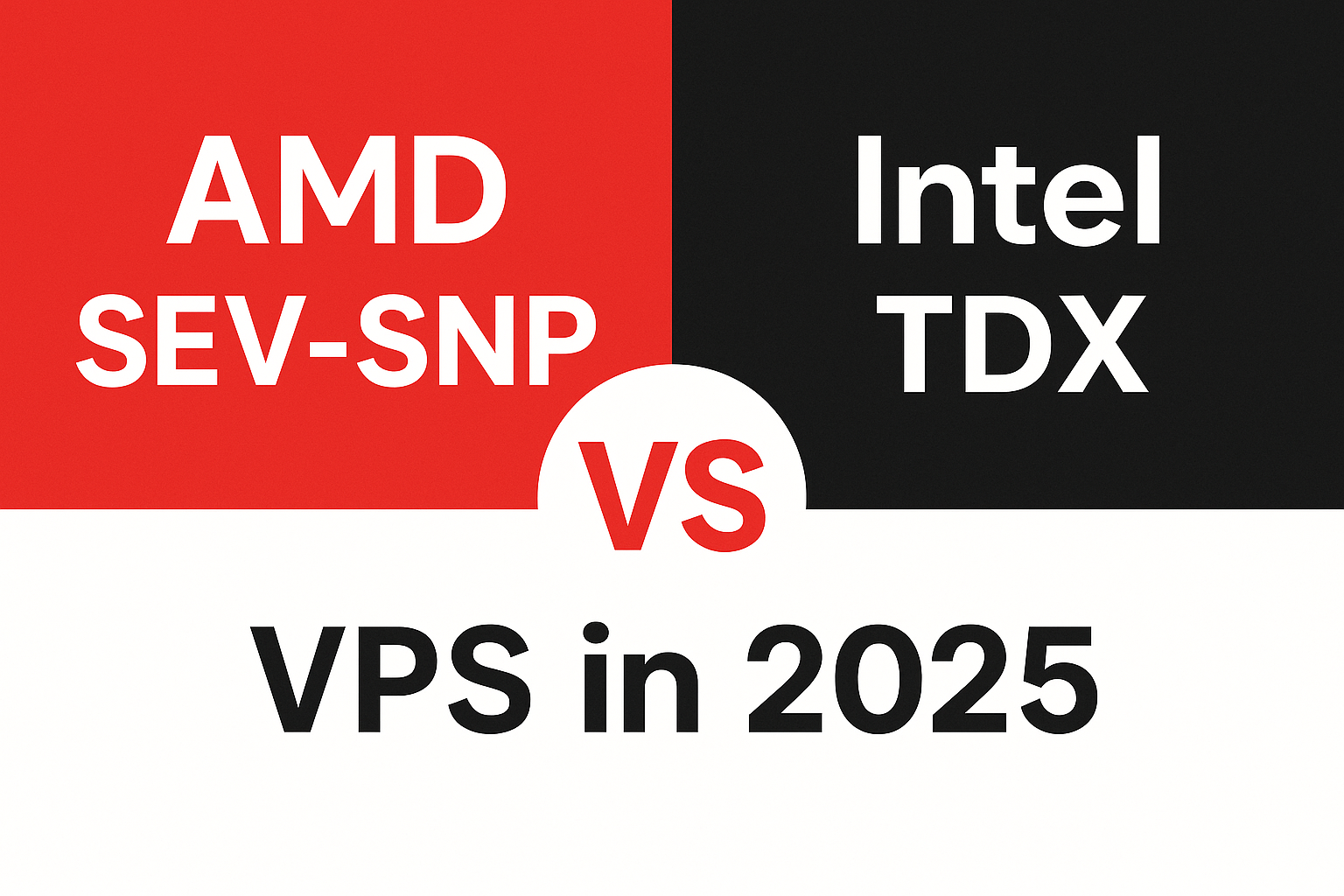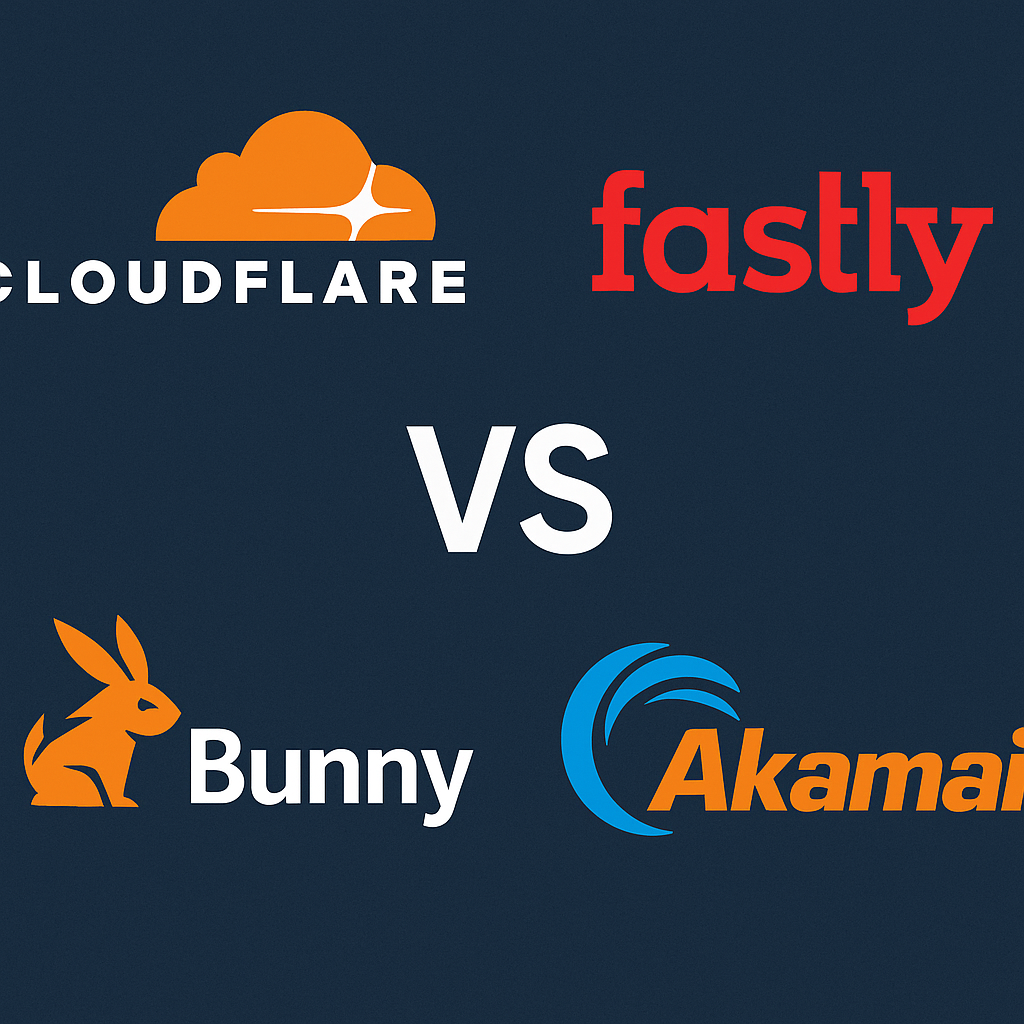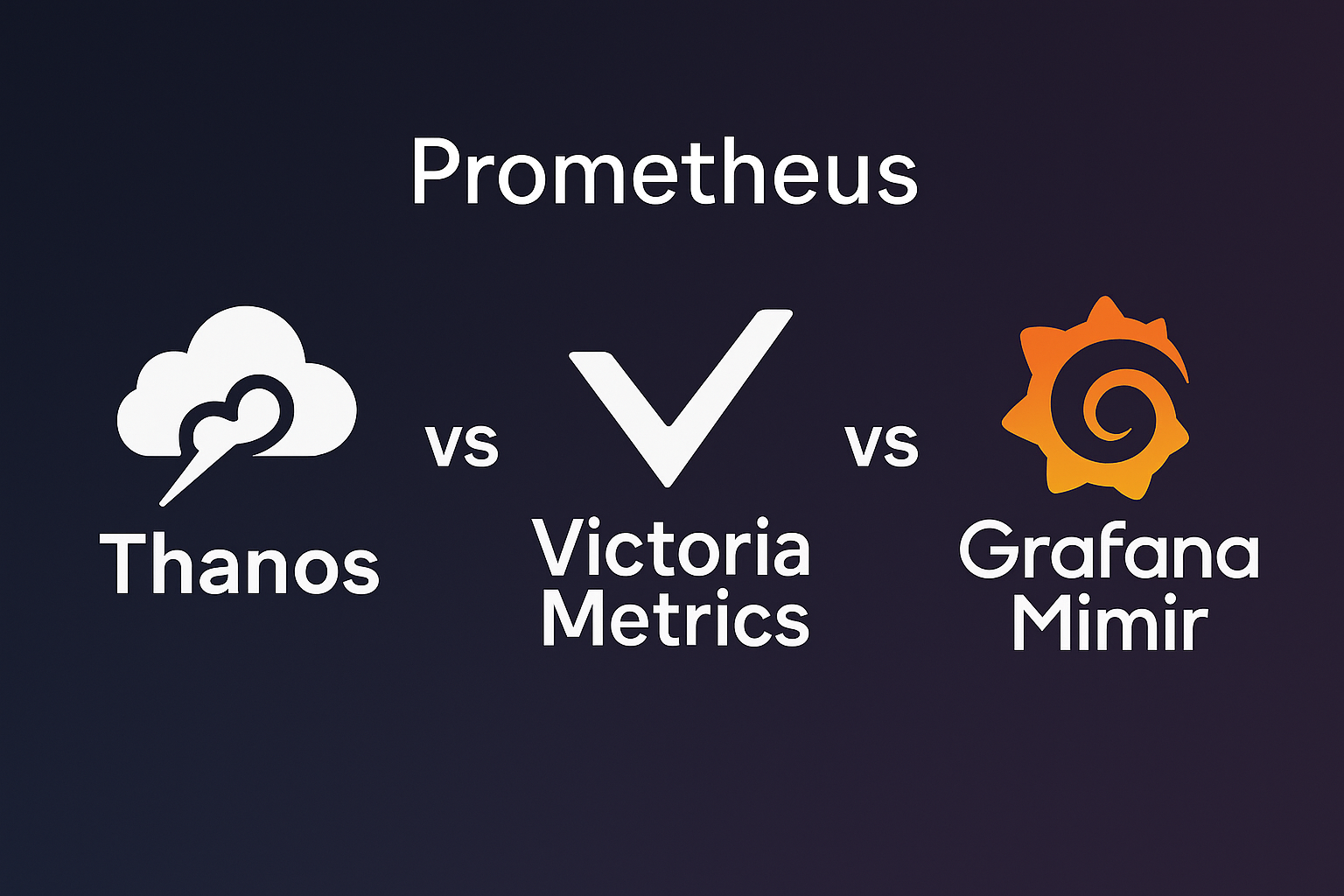AMD SEV-SNP vs Intel TDX on VPS in 2025: Isolation Guarantees, Performance Overhead, and Use-Case Guide

Introduction
As organizations increasingly turn to cloud computing for sensitive workloads, confidential computing has become a cornerstone of modern security paradigms. In 2025, two leading technologies dominate the confidential computing landscape on cloud VPS platforms: AMD Secure Encrypted Virtualization with Secure Nested Paging (SEV-SNP) and Intel Trust Domain Extensions (TDX).
Both technologies promise to protect virtual machines from threats originating from the hypervisor, other VMs, and even physical access to the hardware. However, they take fundamentally different approaches to achieving confidential computing, each with distinct implications for performance, security guarantees, and practical deployment scenarios.
In this comprehensive guide, we’ll compare AMD SEV-SNP and Intel TDX across critical dimensions including isolation guarantees, performance overhead, and real-world use cases. Whether you’re evaluating dedicated CPU configurations for security-sensitive applications or planning a migration to confidential computing, this analysis will help you make an informed decision.
Understanding Confidential Computing Fundamentals
AMD SEV-SNP Architecture
AMD SEV-SNP builds upon the foundation of SEV and SEV-ES, adding Secure Nested Paging to prevent hypervisor-based attacks on guest page tables. The technology creates an isolated execution environment where:
- Memory encryption: All VM memory is encrypted with keys managed by the AMD Secure Processor
- Integrity protection: SNP prevents unauthorized modifications to guest memory pages
- Attestation capabilities: Guests can verify the authenticity of their execution environment
- Hardware-enforced isolation: The hypervisor cannot access or modify guest memory
Intel TDX Architecture
Intel TDX introduces the concept of Trust Domains (TDs) – isolated execution environments that operate independently of the Virtual Machine Monitor (VMM). Key architectural features include:
- CPU-enforced isolation: Trust domains are protected by CPU access controls
- Memory integrity via MKTME: Multi-Key Total Memory Encryption provides per-TD encryption
- Attestation through Intel TXT: Comprehensive platform and workload verification
- Minimal hypervisor trust: Reduced dependence on VMM for security guarantees
Isolation Guarantees Comparison
Threat Model Coverage
Both technologies address similar threat vectors but with different approaches:
AMD SEV-SNP Protection Scope:
- Hypervisor-based attacks on guest memory
- Physical memory access attacks
- Cross-VM information leakage
- Rollback and replay attacks via RMP (Reverse Map Table)
Intel TDX Protection Scope:
- Comprehensive VMM isolation
- Hardware-level memory protection
- Side-channel attack mitigation
- Platform firmware trust verification
Attestation and Verification
Intel TDX provides more comprehensive attestation capabilities, including platform configuration verification and supply chain validation through Intel’s attestation services. AMD SEV-SNP offers robust guest attestation but with a more focused scope on the immediate execution environment.
Performance Overhead Analysis
Computational Performance Impact
Based on industry benchmarks and real-world deployments:
AMD SEV-SNP Performance Characteristics:
- CPU-intensive workloads: 2-5% performance overhead
- Memory-intensive applications: 5-10% overhead due to encryption
- I/O operations: Minimal impact on most workloads
- Network throughput: Negligible overhead for most applications
Intel TDX Performance Characteristics:
- CPU-intensive workloads: 3-8% performance overhead
- Memory-intensive applications: 8-15% overhead
- Context switching: Higher overhead due to TD isolation mechanisms
- I/O performance: 5-10% degradation in I/O-heavy scenarios
Resource Requirements
For optimal performance with confidential computing enabled:
Minimum Recommended Specifications:
- RAM: 8GB minimum, 16GB+ recommended for production workloads
- CPU: Modern AMD EPYC (Milan/Genoa) or Intel Xeon (Sapphire Rapids+)
- Storage: NVMe SSD for optimal I/O performance
Practical Implementation Considerations
Operating System Compatibility
AMD SEV-SNP Support:
- Ubuntu 22.04 LTS and later (kernel 5.19+)
- RHEL 9.0+ and derivatives
- Windows Server 2022 with specific drivers
Intel TDX Support:
- Ubuntu 23.04+ (kernel 6.2+)
- RHEL 9.2+ with TDX enablement
- Limited Windows support (preview availability)
Deployment Complexity
AMD SEV-SNP generally offers simpler deployment processes, with many cloud providers offering SEV-SNP as a configuration option. Intel TDX requires more extensive platform preparation and may need specialized tooling for attestation and verification processes.
Use Case Recommendations
When to Choose AMD SEV-SNP
Ideal Scenarios:
- Financial services: Transaction processing and customer data protection
- Healthcare applications: HIPAA-compliant data processing
- Multi-tenant SaaS: Customer data isolation in shared environments
- Regulatory compliance: Workloads requiring data sovereignty
Performance Priorities: Choose SEV-SNP when you need lower performance overhead and simpler deployment processes.
When to Choose Intel TDX
Ideal Scenarios:
- Government and defense: High-security workloads requiring comprehensive attestation
- AI and machine learning: Protecting proprietary models and training data
- Supply chain security: Applications requiring platform integrity verification
- Zero-trust architectures: Environments with minimal trust assumptions
Security Priorities: Choose TDX when maximum security assurance and comprehensive attestation capabilities outweigh performance considerations.
Migration and Adoption Strategies
Assessment Criteria
Before migrating to confidential computing, evaluate:
- Data sensitivity levels: Classification of workload data requirements
- Performance tolerance: Acceptable overhead thresholds
- Compliance requirements: Regulatory mandates and industry standards
- Integration complexity: Existing infrastructure compatibility
Phased Deployment Approach
Consider a gradual migration strategy:
- Pilot phase: Test with non-critical workloads
- Performance validation: Benchmark critical applications
- Security verification: Validate attestation and isolation
- Production rollout: Migrate sensitive workloads systematically
Best Practices
Security Configuration
Essential Security Measures:
- Enable attestation verification for all confidential VMs
- Implement secure boot processes with verified signatures
- Regular security updates for guest operating systems
- Monitor attestation failures and security events
Performance Optimization
Optimization Strategies:
- Right-size VM resources to account for confidential computing overhead
- Consider appropriate filesystem choices for encrypted workloads
- Implement efficient memory management practices
- Use dedicated CPU configurations for performance-critical applications
Monitoring and Maintenance
Critical Monitoring Points:
- Performance metrics comparison with non-confidential baselines
- Attestation success rates and verification logs
- Memory encryption overhead analysis
- Security event correlation and incident response
Conclusion
The choice between AMD SEV-SNP and Intel TDX depends heavily on your specific security requirements, performance tolerance, and deployment complexity preferences. AMD SEV-SNP excels in scenarios requiring lower performance overhead and simpler implementation, making it ideal for financial services and healthcare applications. Intel TDX provides superior security assurance and comprehensive attestation capabilities, making it the preferred choice for government, defense, and high-security AI workloads.
As confidential computing matures in 2025, both technologies continue evolving with improved performance characteristics and broader ecosystem support. The key to successful adoption lies in thorough workload assessment, systematic testing, and alignment with your organization’s security and performance requirements.
For organizations seeking to implement confidential computing on high-performance infrastructure, we offer Singapore VPS, Sydney VPS, and Amsterdam VPS solutions with AMD EPYC processors supporting advanced security features including SEV-SNP capabilities. Our platform provides the foundation for secure, isolated execution environments while maintaining the performance standards required for demanding enterprise workloads.
Related Articles

Top CDN Providers for VPS in 2025: Complete Performance Analysis of Cloudflare vs Fastly vs Bunny vs Akamai

Master Cloud-Init on Ubuntu 24.04: 30 Production-Ready Templates for Docker, SSH Security, and VPS Automation
